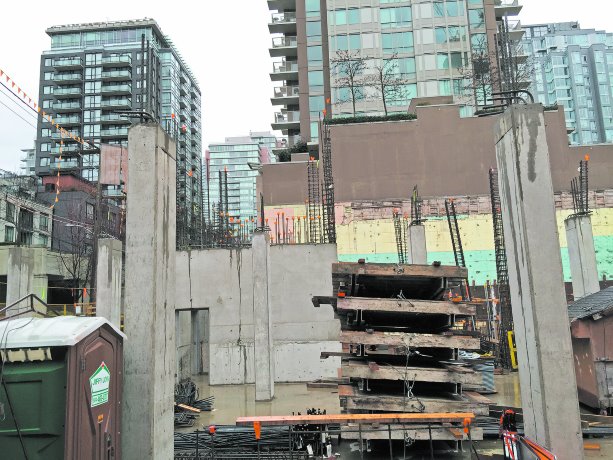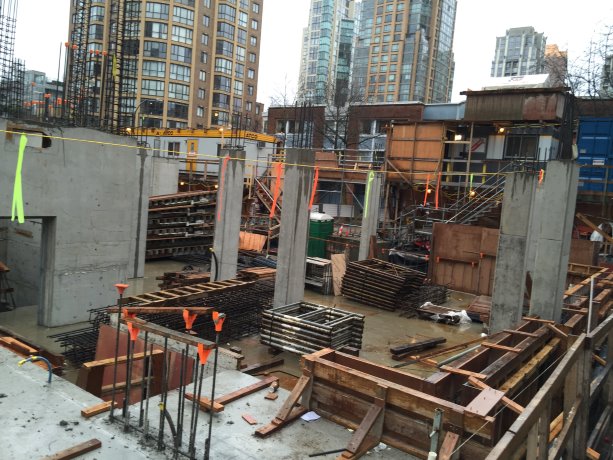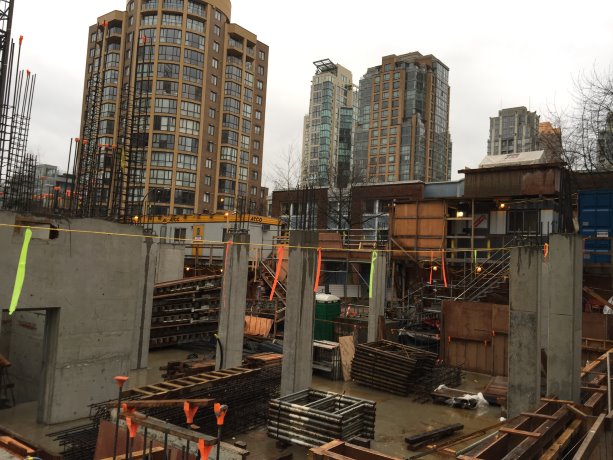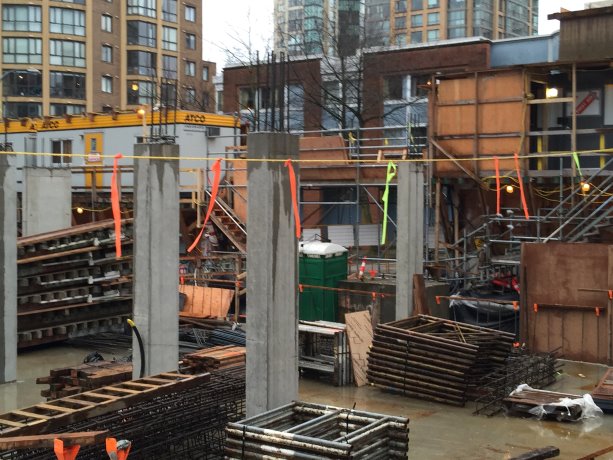A B.C. Supreme Court judge, citing a lack of transparency by the city, killed a 36-storey tower development that was well under construction in Vancouver’s Yaletown neighbourhood.
A stop work order was issued for the Richards Street property Jan. 29 after the court quashed the rezoning and development permit for the site.
"I have concluded in this case that the public hearing and the development permit processes were flawed in that the city has taken an unduly restrictive view of the discussion that should have been permitted," wrote Justice Mark McEwan, siding with the Community Association of New Yaletown (CANY).
The association took the city to court over a 2013 public hearing that saw the Vision Vancouver-led council approve a land swap.
The deal would see Brenhill Developments trade the city its Richards Street site for Jubilee House, a city-owned social housing property on Helmcken Street.
The Jubilee property contains 87 housing units for residents on veteran’s pensions, welfare or disability.
The deal originally allowed the developer to construct a tower on top of the Jubilee property.
"We’re terribly disappointed with the way the court viewed the process that brought this project to fruition and that the decision has now halted a project already under construction," read an email statement by Brenhill.
"The overall project is one that offers many benefits to the people of Vancouver, not the least of which is the 162 new non-market housing units that replace and expand the decrepit Jubilee House that has long provided housing for people in need. It also delivers much needed market rental housing in Vancouver’s downtown core."
The plan was to build more than five times the density and four times the height the community development plan would allow.
In exchange, the developer would also build a 172-unit social housing complex on its property. By the time the swap was finalized, the project had been scaled back.
The association took issue with the development and the public hearing process.
It argued the city did not disclose all the details of the plan that it had already made up its mind to do.
Residents also argued that the financial details of the swap showed it would not be favourable for the city or taxpayers.
Brenhill’s property was valued at $8.4 million and the city’s was estimated to be worth $15 million.
Brenhill had also agreed to give the city $25 million in community amenity contributions.
The deal would have seen the value difference and $25 million used to build the social housing units.
"The procedure the city adopted was unfairly restrictive, in presenting the public with a package of technical material that was opaque, compared to the material presented in court," wrote McEwan.
"A public hearing is not just an occasion for the public to blow off steam: it is a chance for perspectives to be heard that have not been heard as the city’s focus has narrowed during the project negotiations. Those perspectives, in turn, must be fairly and scrupulously considered and evaluated by council before making its final decision."
According to a statement by CANY, it is the association’s "hope that this ruling will change the way that the city involves residents in the development process. Not just for these two developments. Not just in New Yaletown. Full and lucid disclosure of all relevant information, an open discussion with an informed public, and council’s scrupulous consideration of public input before making its final decision are needed in all developments. All across the city."
According to CANY, the ruling essentially resets things back to the way they were before the first public hearing about the developments.
The city still owns the Helmcken Street property, the site of Jubilee House.
Developer Brenhill still owns its property on Richards Street.
The company stated in its email that it is much easier to attack complex city development approval processes than it is to build affordable housing for those who really need it. Brenhill is reviewing the court’s decision before making additional comments.

1/4
A stop work order has been posted at the Yaletown worksite, which now sits idle.
Photo: Warren Frey
2/4

3/4
A construction site in Vancouver's Yaletown lays dormant after a judge revoked the rezoning and development permit for the project.
Photo: Warren Frey











Recent Comments
comments for this post are closed